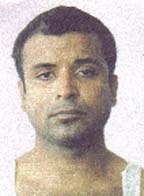The state will be seeking the forfeiture of the local assets of Guyanese convicted of narcotic offences in the US, Head of the Presidential Secretariat Dr Roger Luncheon said yesterday, saying that evidence in those cases would also be used to conclude criminal investigations.

Luncheon was at the time responding to a question about the delay in the government moving against the assets of persons convicted in the US and he disclosed that the authorities have sought and are now receiving information, which he described as having the potential of “being a minefield.” However, he made it clear that a mere conviction in the US courts cannot be equal to a person’s assets being seized in Guyana, as the evidence has to be presented in the local courts and a ruling would have to be made.
“I don’t believe that it is solely the basis of a conviction in another jurisdiction that you can go and snatch people thing in Guyana,” Luncheon said. “We are busy compiling reports that are being provided to us from those trials. This was an undertaking that we made that we would solicit the provision of those information from the American authorities and indeed they have started supplying those information.”
The government has been criticised over its failure to seize assets of well known Guyanese businessmen who have been convicted in the US on drug trafficking. Chief among those convicted are Roger Khan, who is reported to own several businesses including a forestry concession in Essequibo; auto-spares dealer Peter Morgan; and David Narine. The latter are also known as businessmen in Guyana and owned several properties.

Luncheon said that the authorities are receiving “quite a bit of information” from their US counterparts and it would be examined to determine “what specifically is required for us to not use for asset forfeiting… but also assist us in bringing conclusions to some of our own criminal investigations. This information, it has the potential, if I might say so, of being a minefield and definitely allowing the elimination of quite a bit of matters that heretofore we have been unable to pursue to finality.”
He said that the authorities, before appearing in the local court system to deal with an issue of asset forfeiting, must be “well prepared and if this information is available I don’t believe we would deny ourselves the utmost opportunity of accessing all the information needed before we present a matter like this to the court. Similarly, in efforts to conclude other criminal investigations, the testimonies in the court in New York might contribute to that. We would also want all of the information and not some of it.
“Once we have started the flow going, we are going to continue until we get all of the information that we need and that pretty much says we have to get access to all of the information that is available to know what it is that we actually need and what can be used.”
